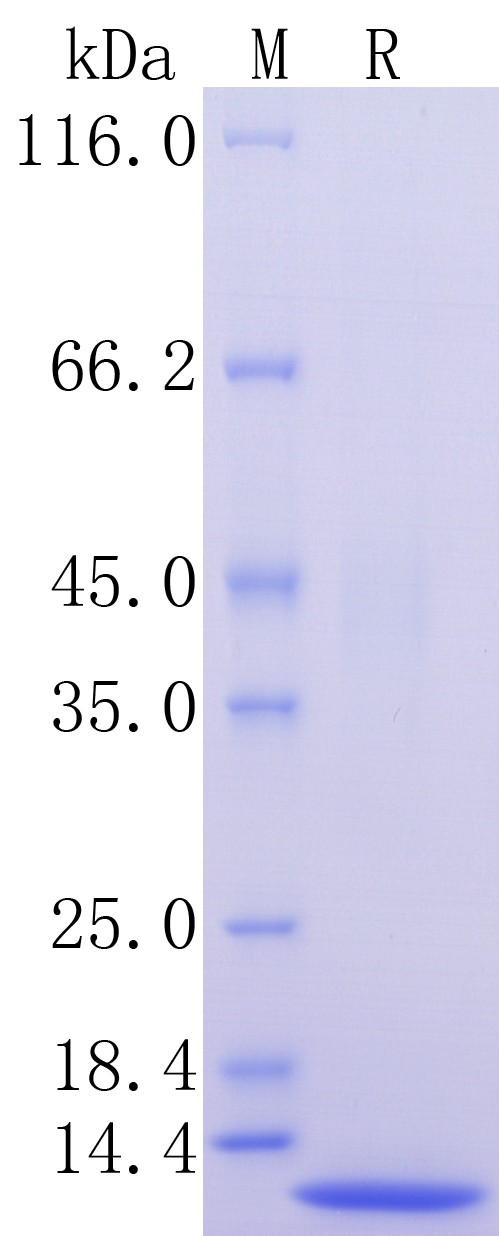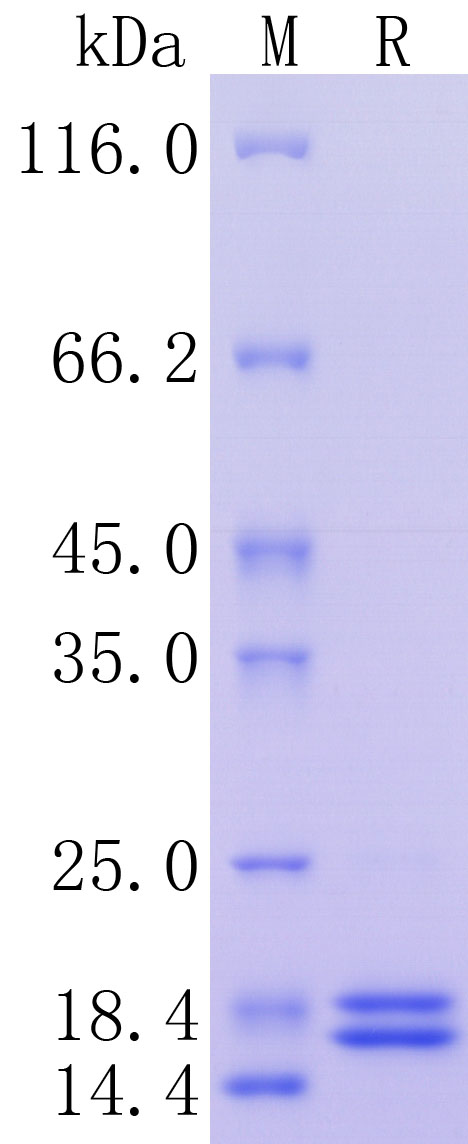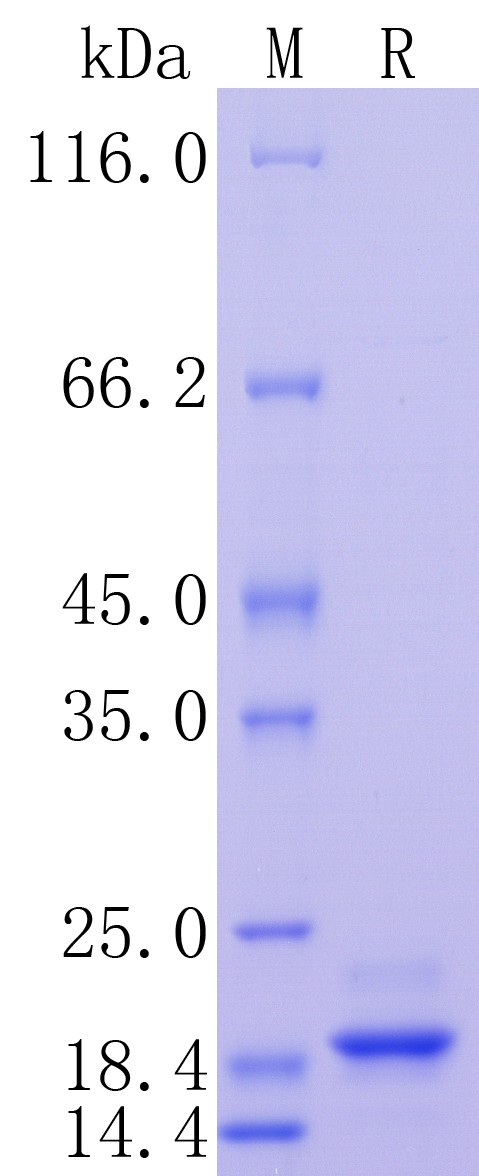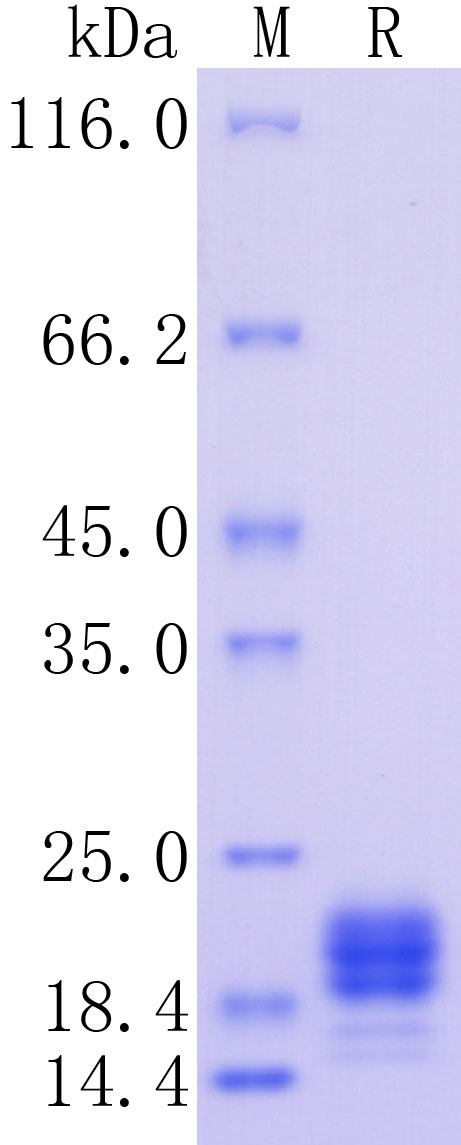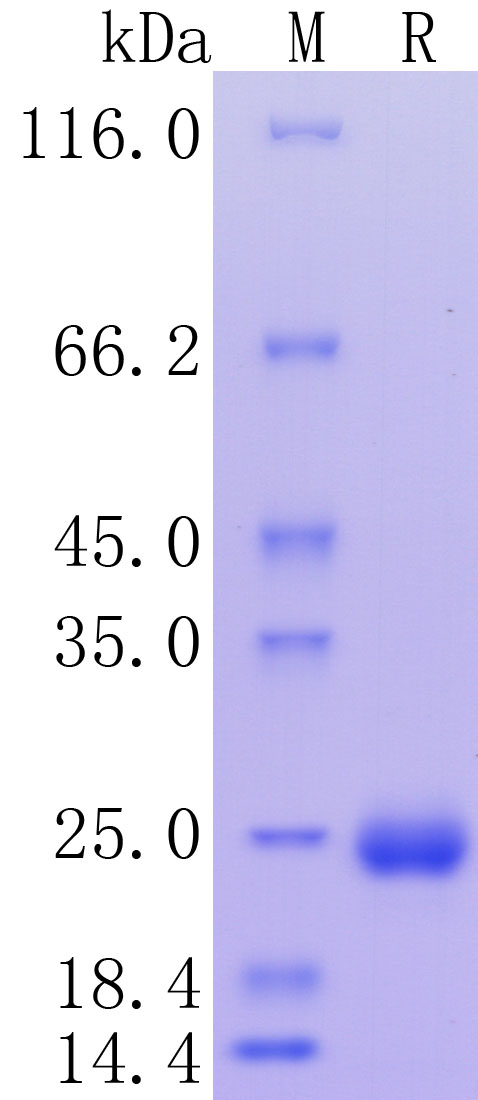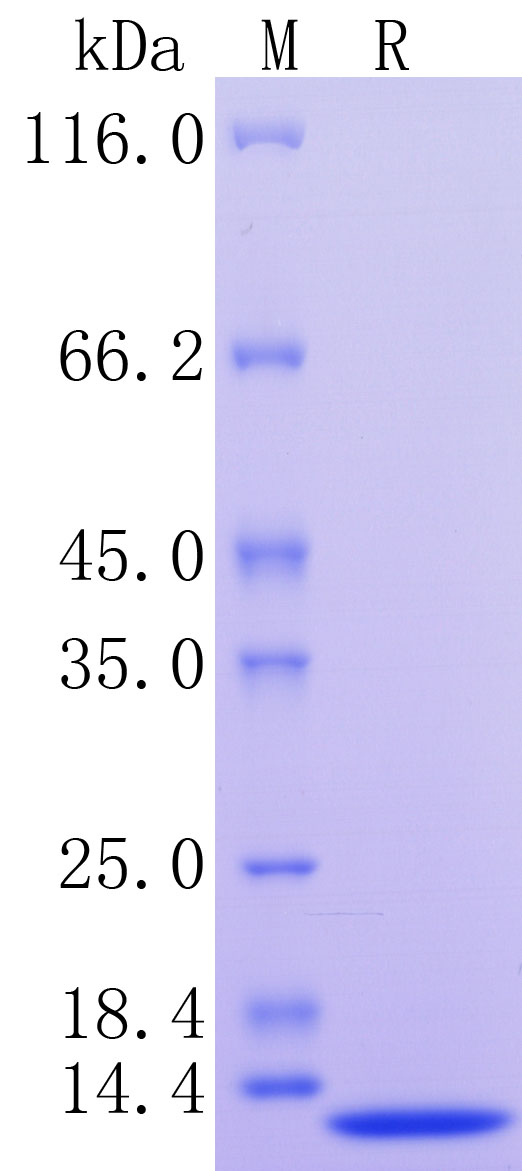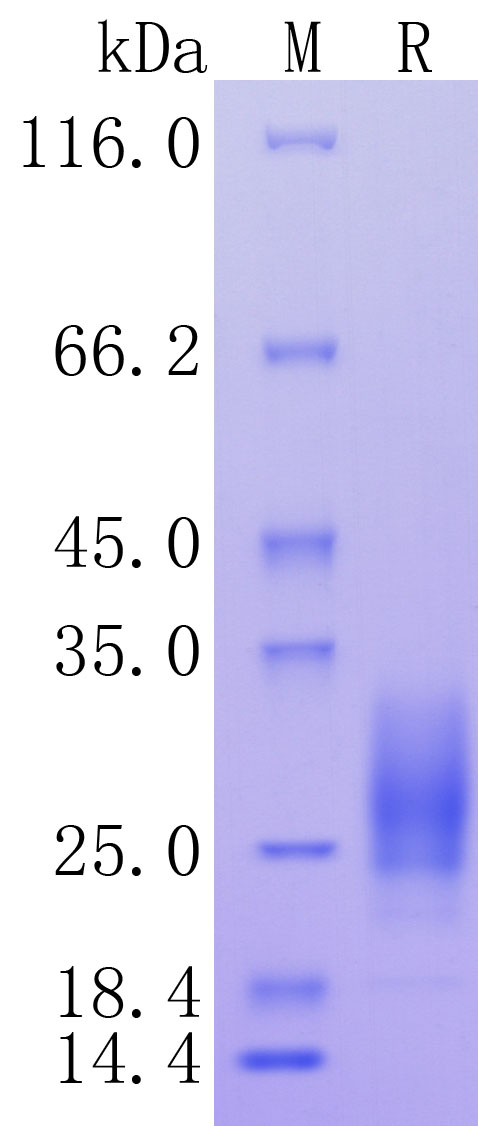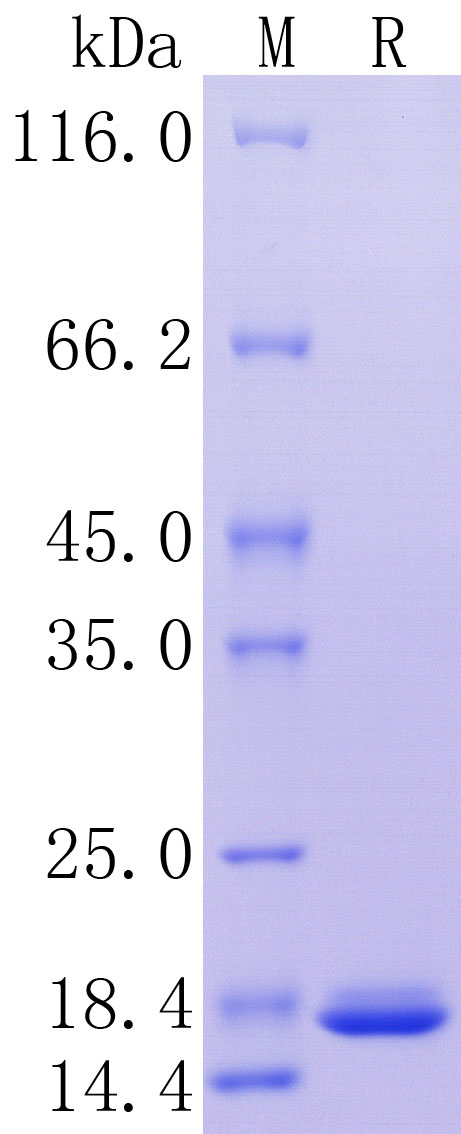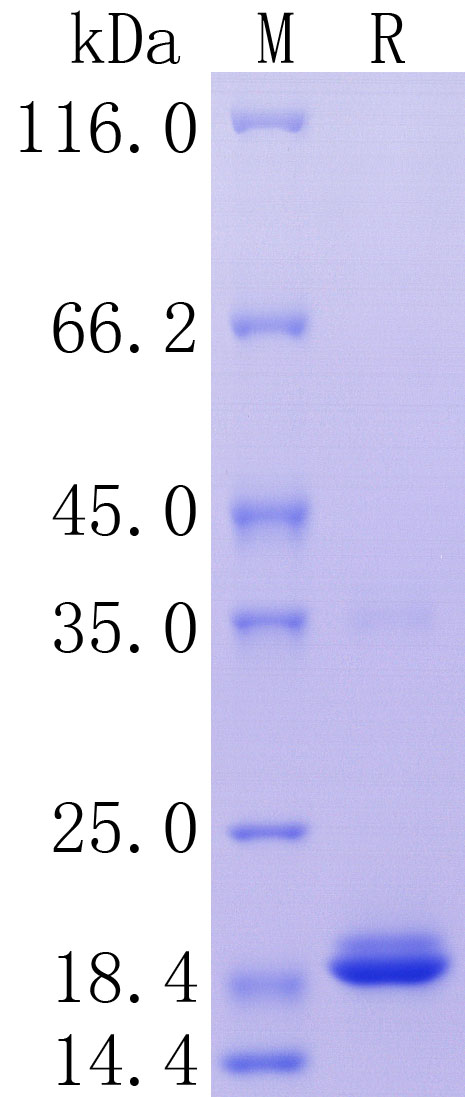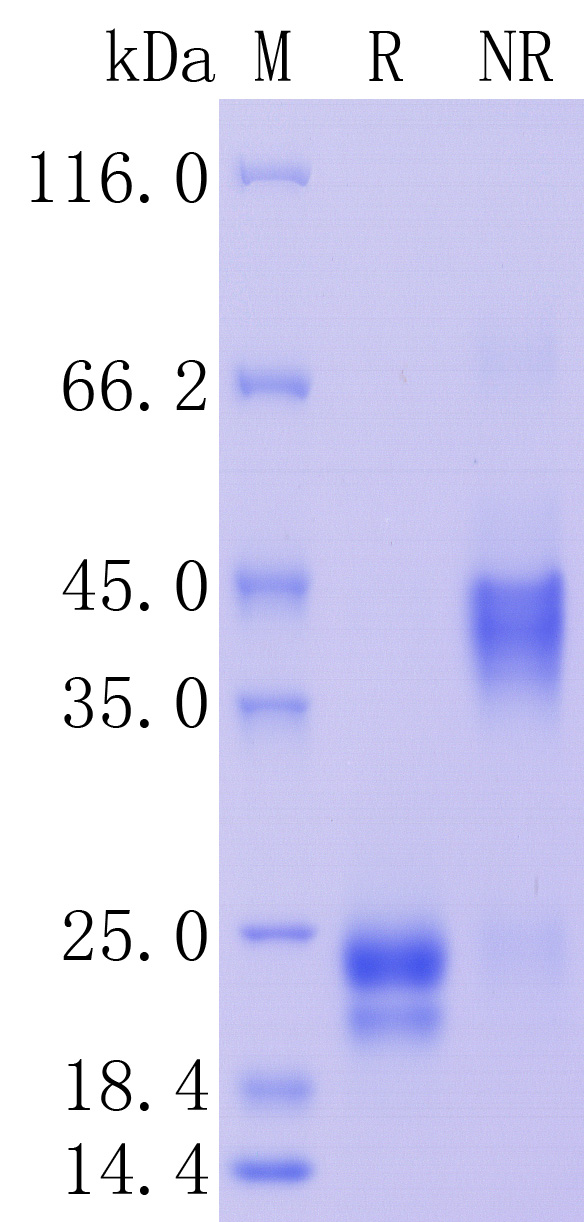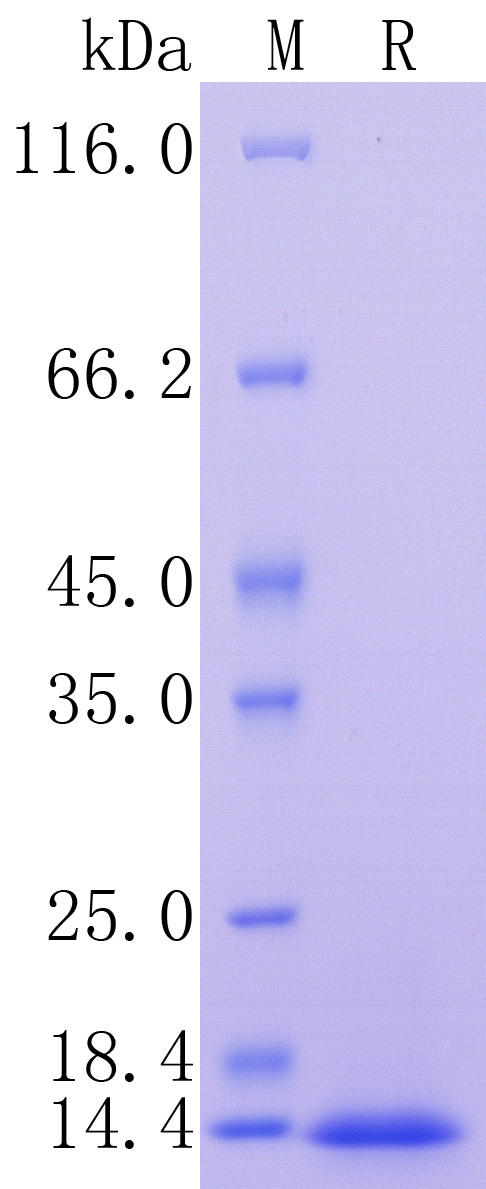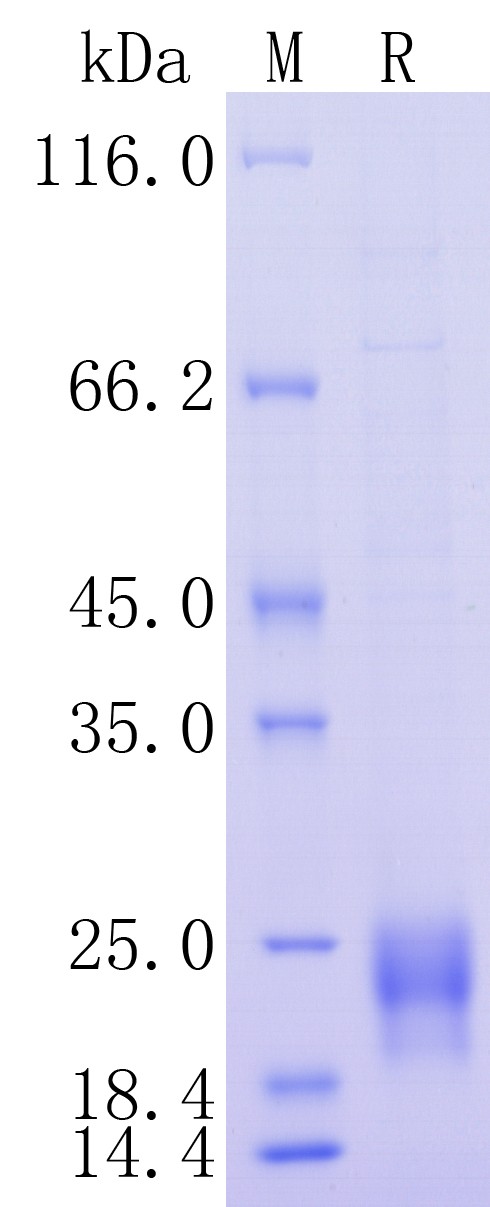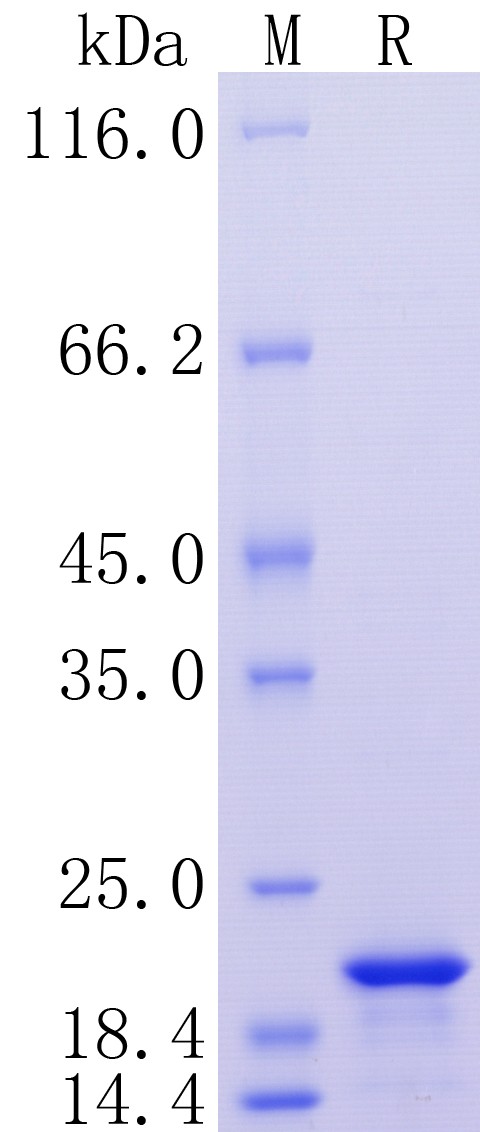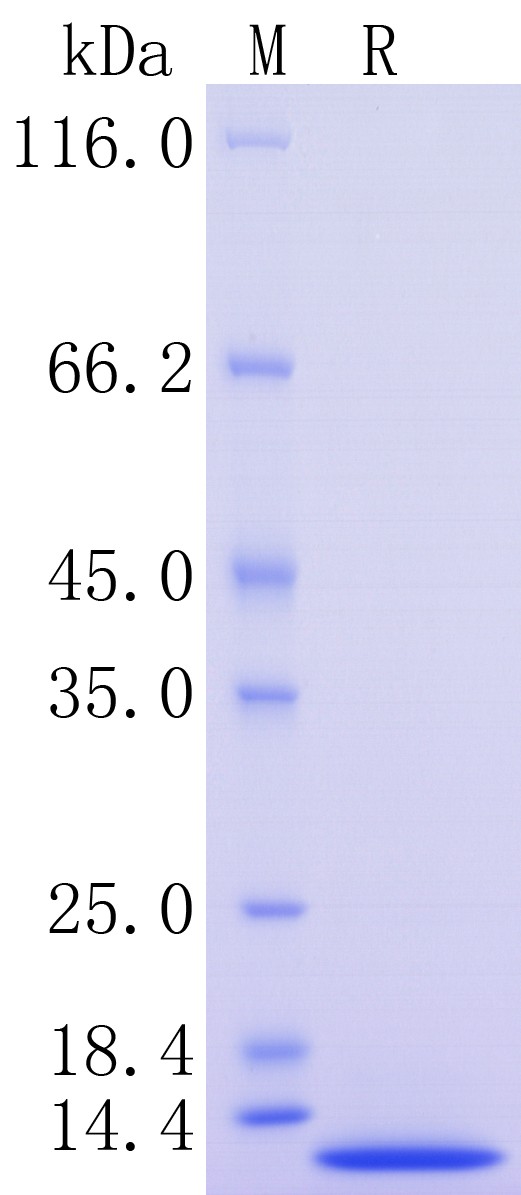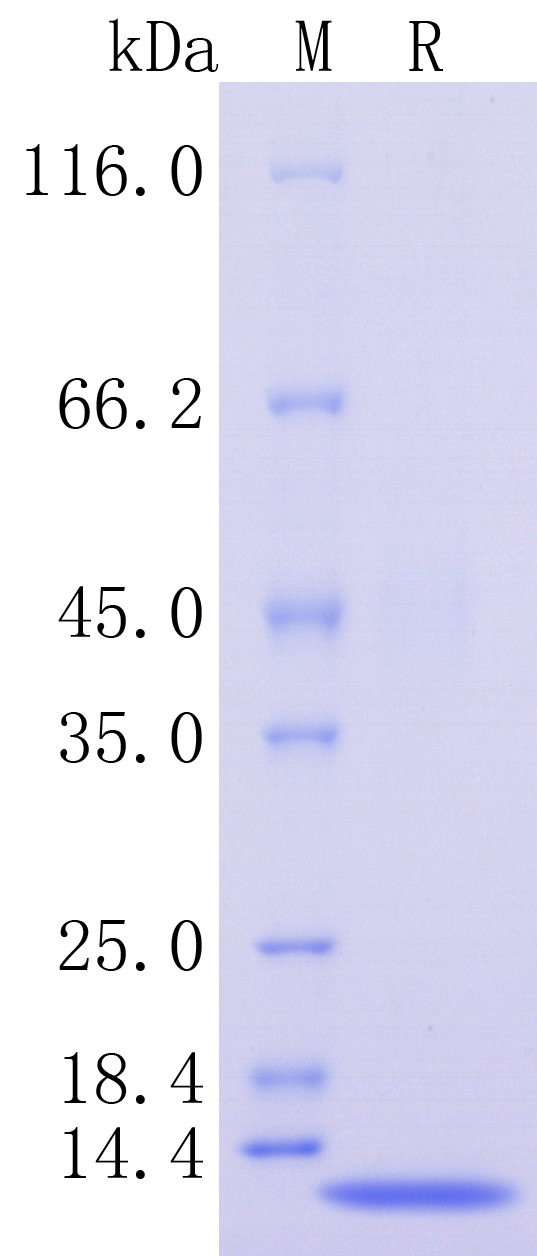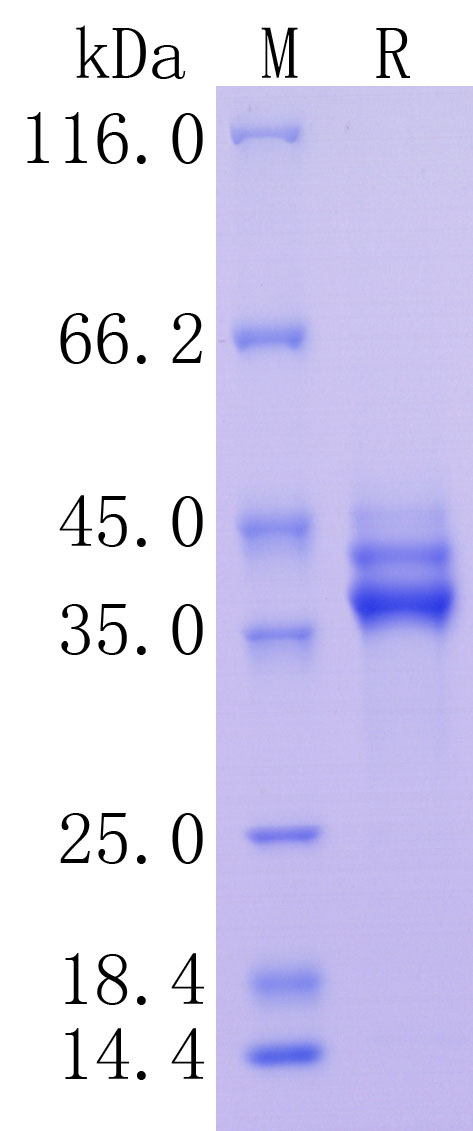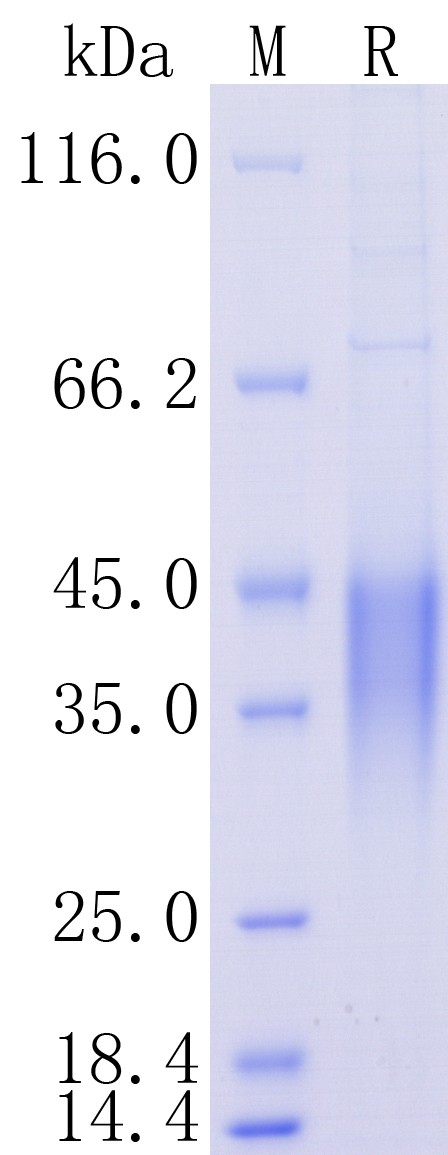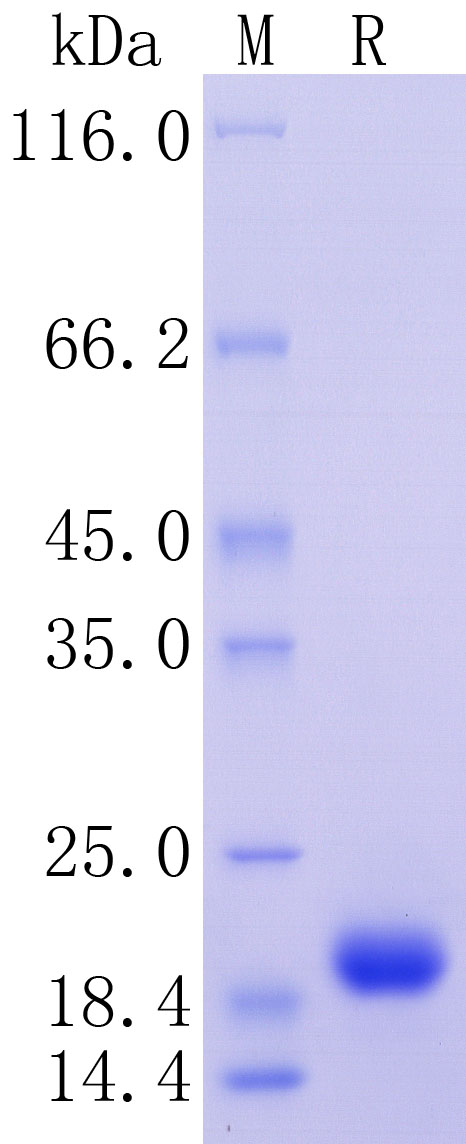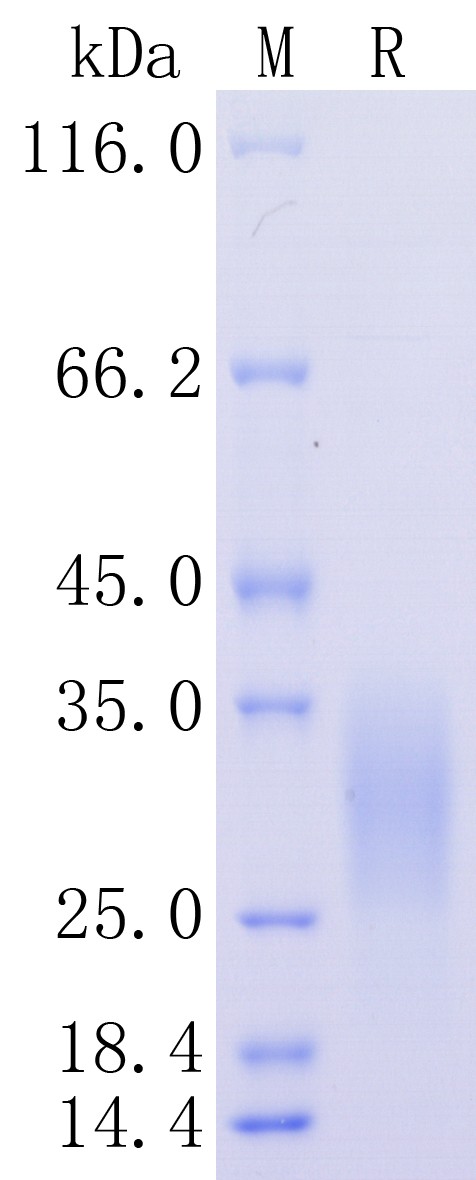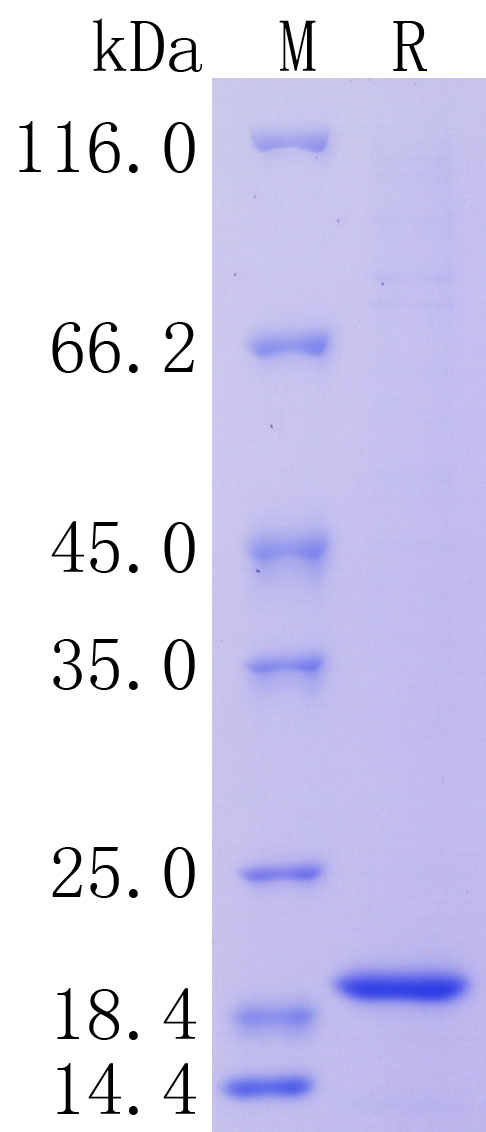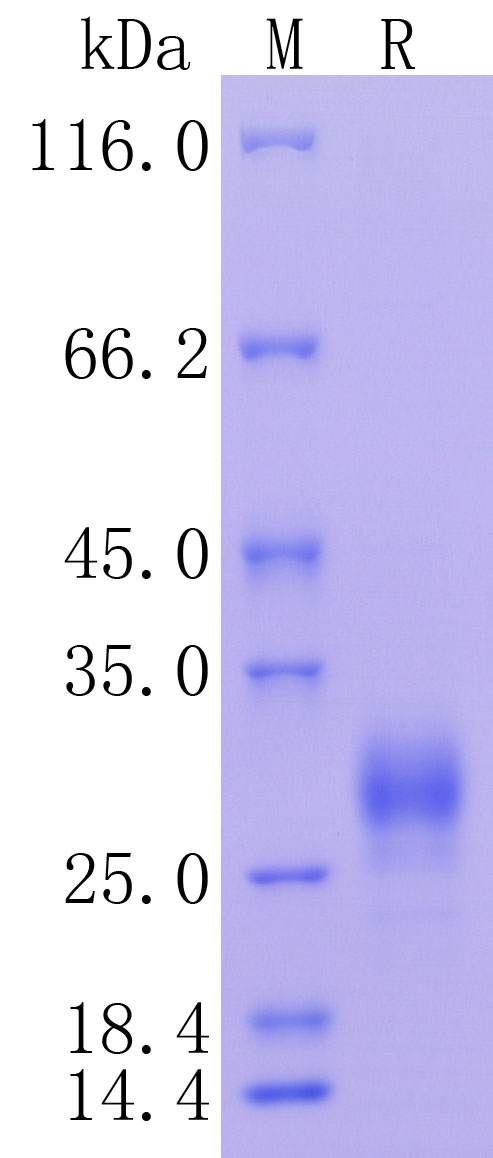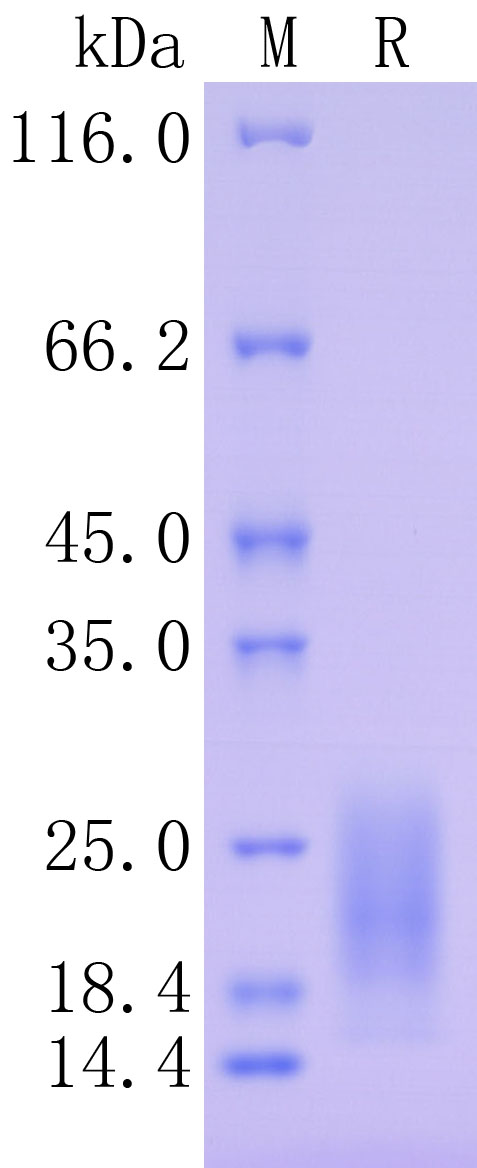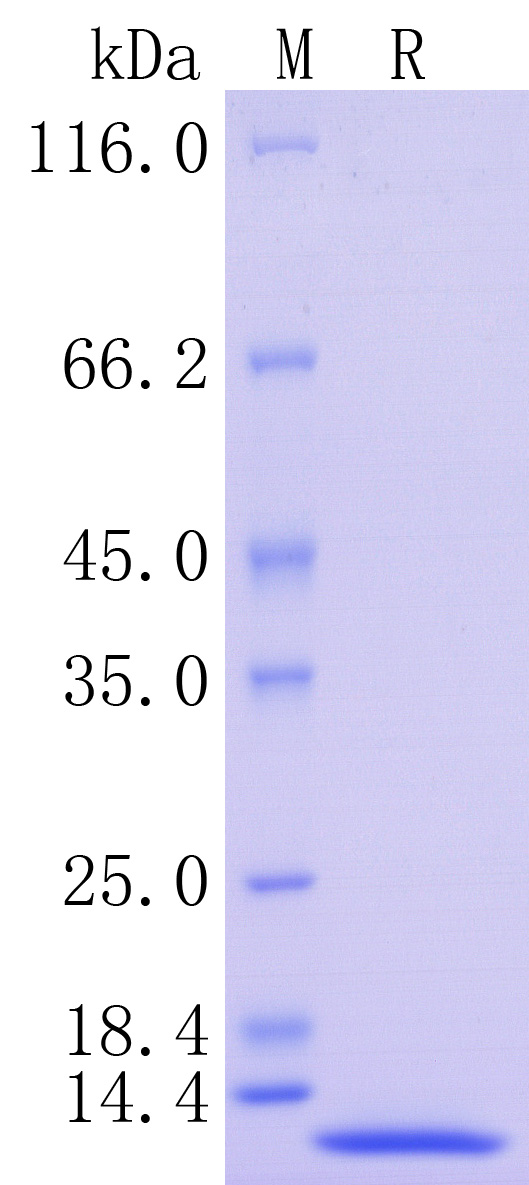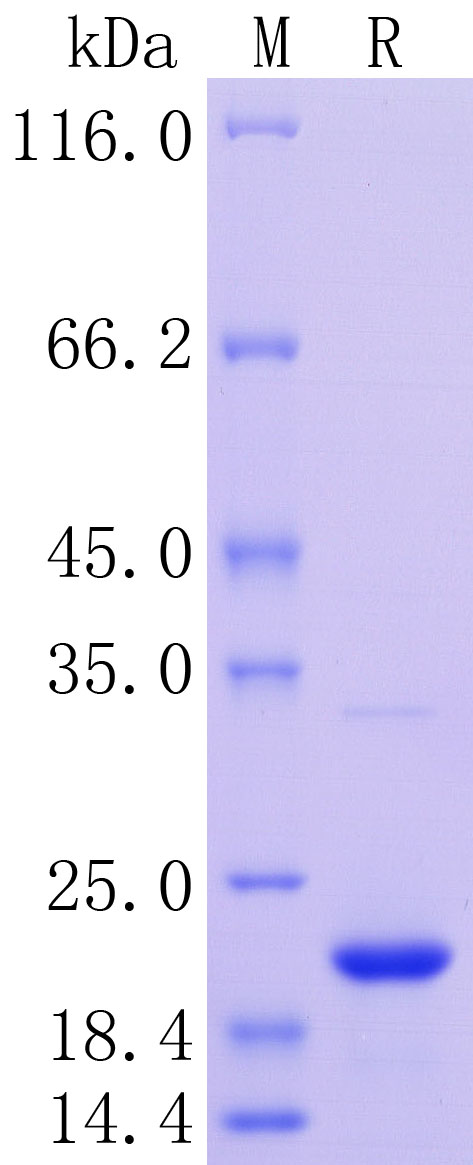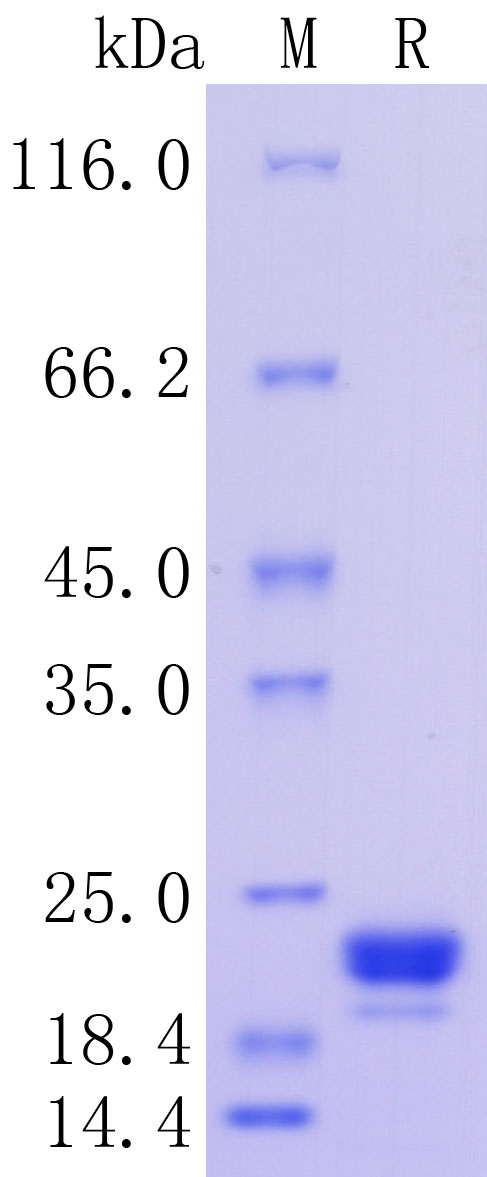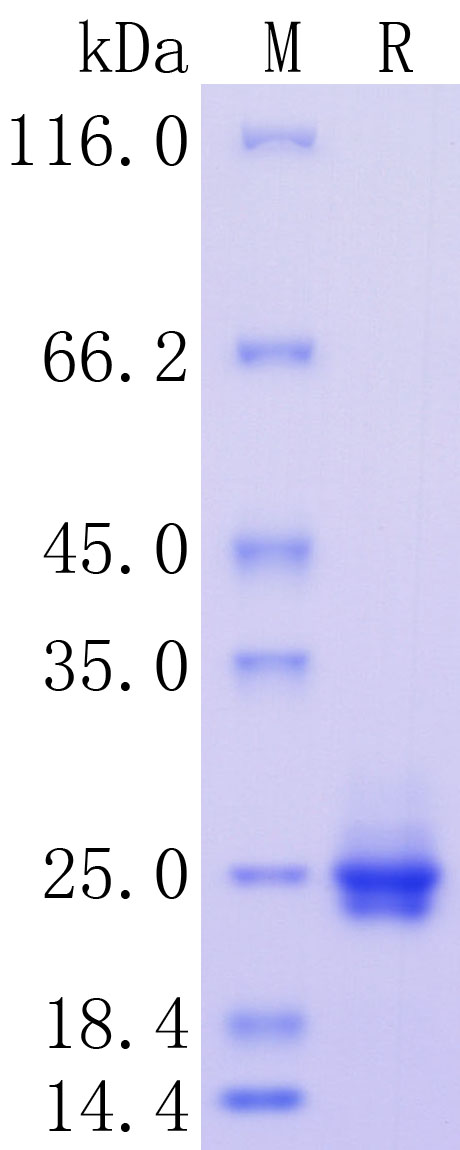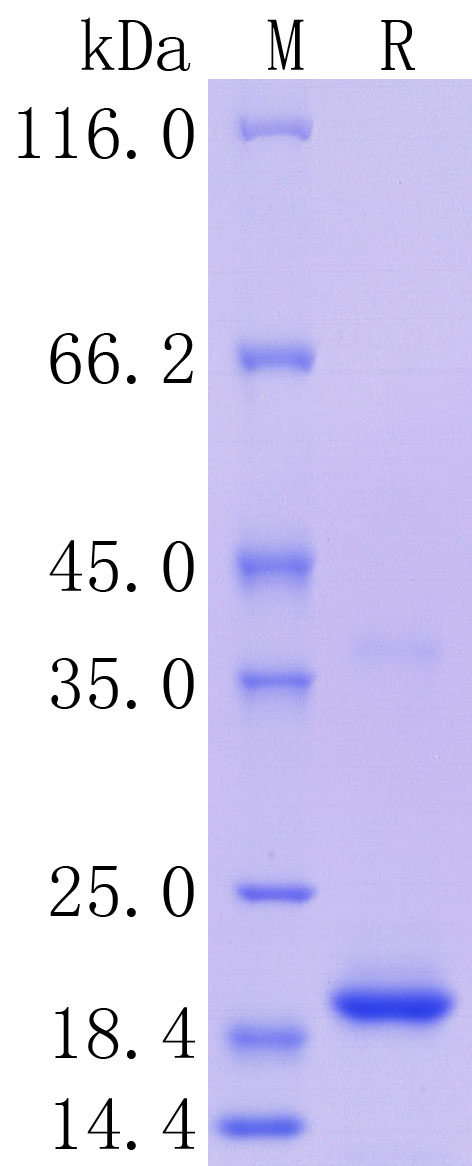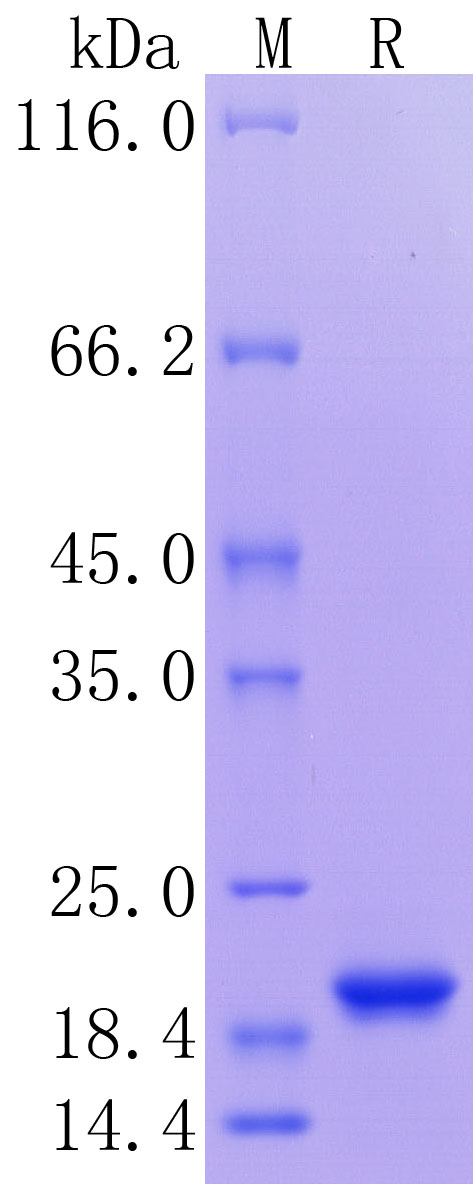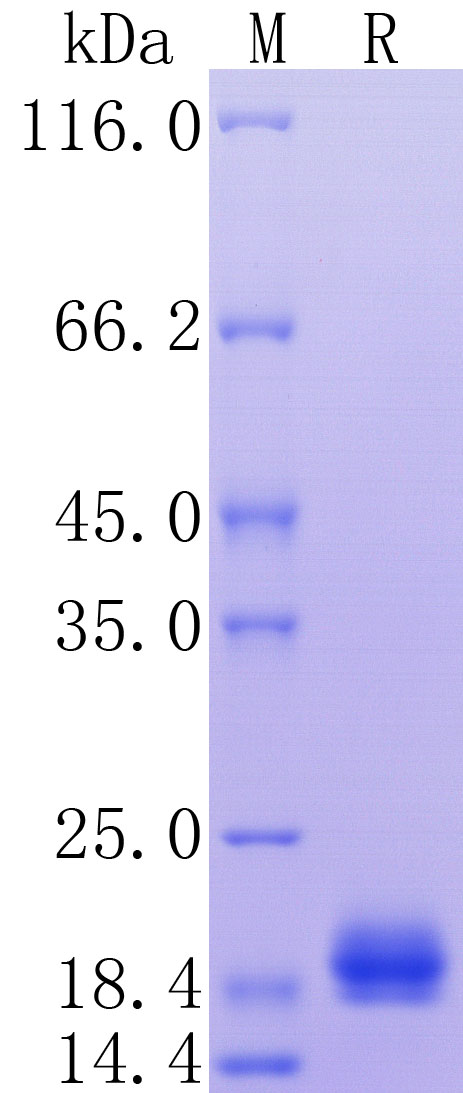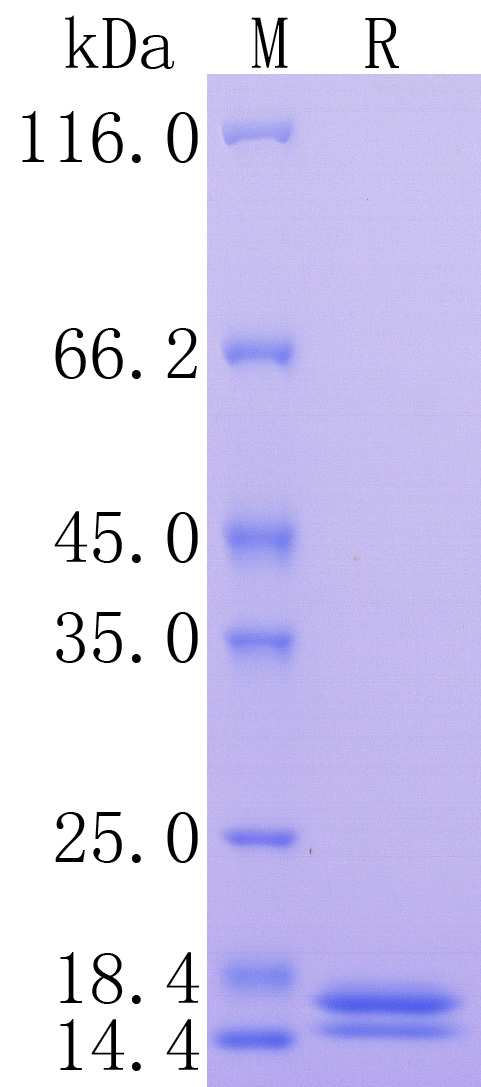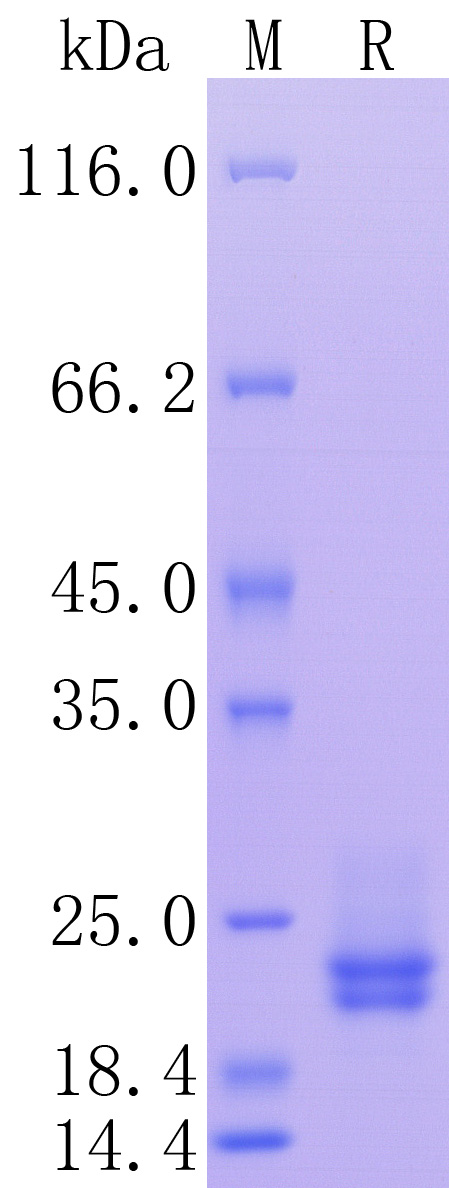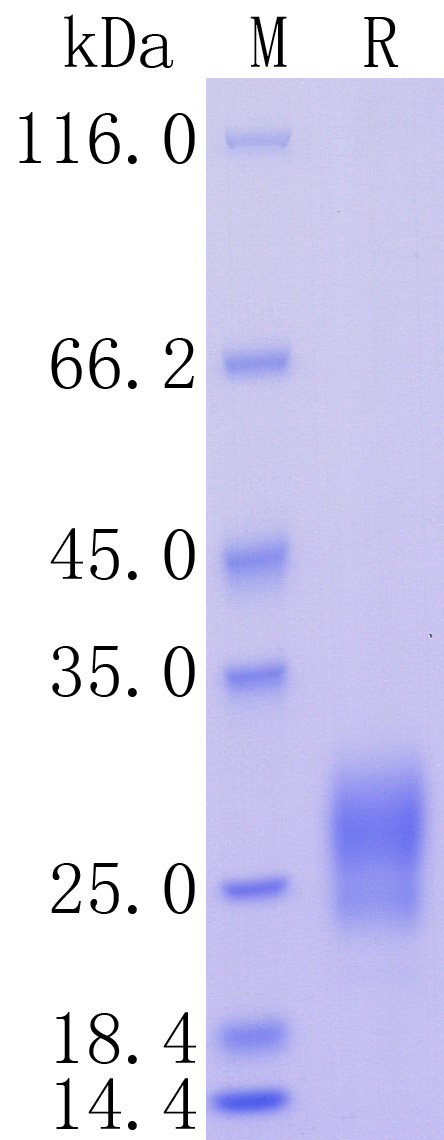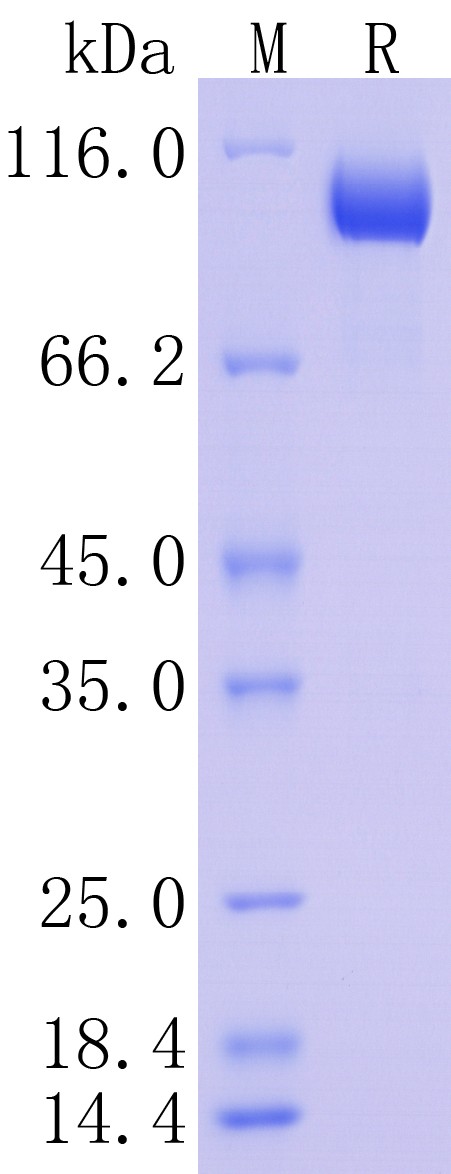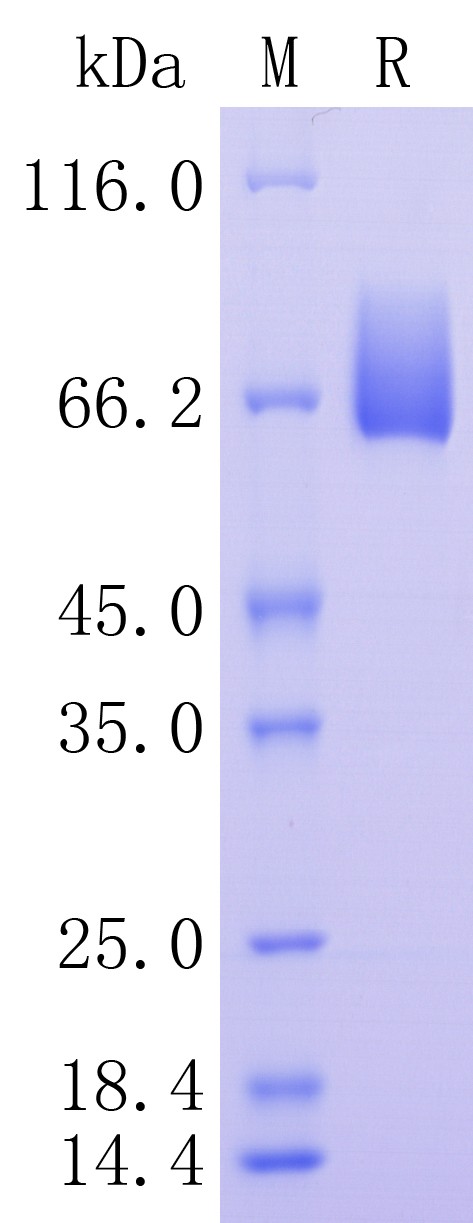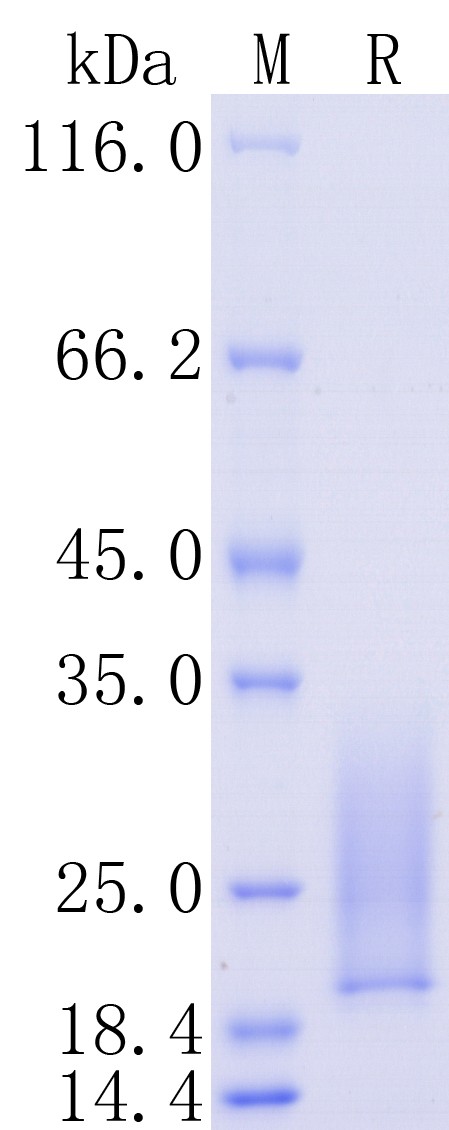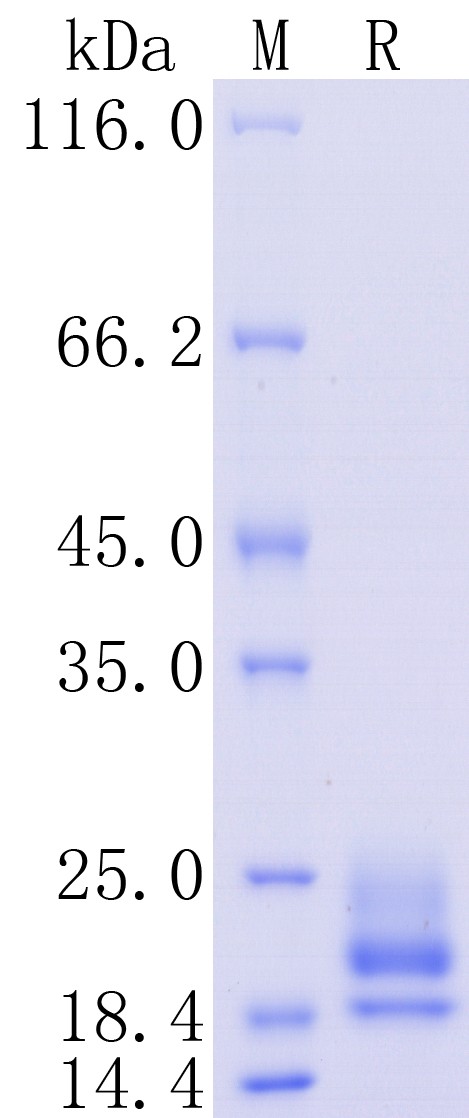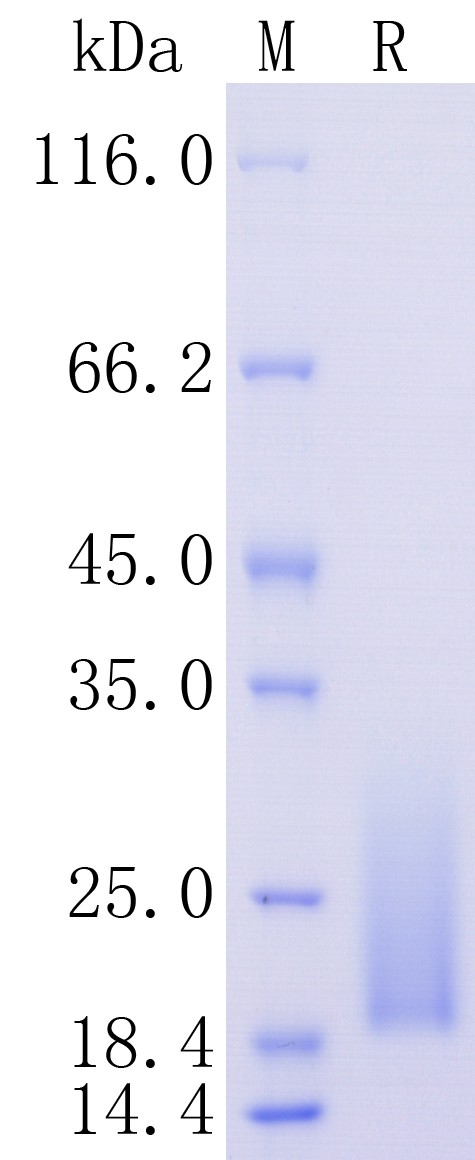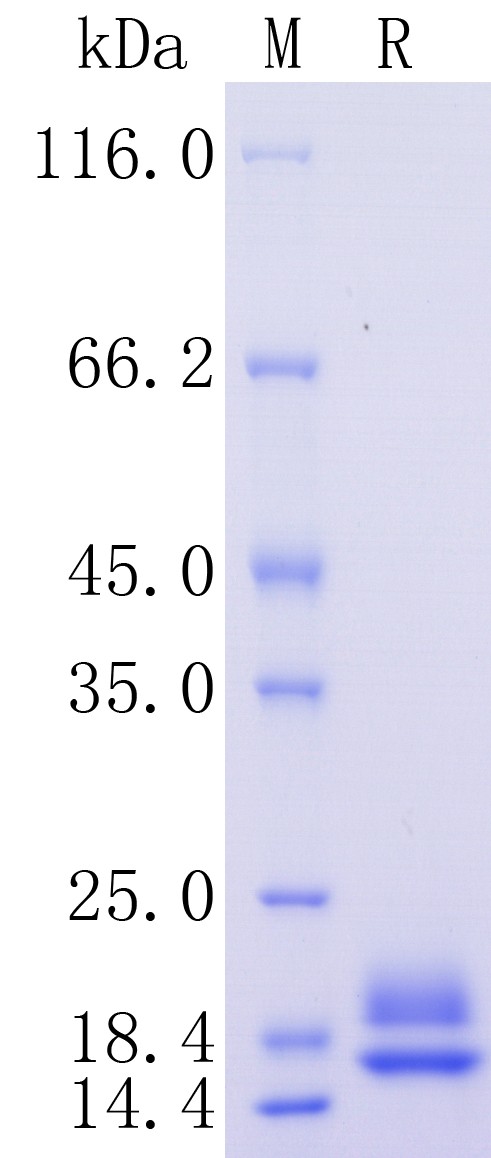Product Information
Product name
Human IL-15, C-Flag Tag
Catalog No.
HA210773
Predicted molecular mass
14.4 kD
Protein construction description
A DNA sequence encoding the human IL-15 protein (P40933-1) (Asn 49-Ser 162) was expressed with a Flag tag at the C-terminus.
Accession
P40933-1
Protein construction
Source
HEK293
Bio Activity
Measured in a cell proliferation assay using NK-92 human natural killer cells. The ED50 for this effect is 0.2-1 ng/mL.
Purity
>95% as determined by SDS-PAGE.
Endotoxin
Less than 1.0 EU per μg by the LAL method.
Formulation
Lyophilized from a 0.2 μm filtered solution of PBS, pH7.4, 5% Trehalose, 5% mannitol.
Species
Human
Background
Cytokine that plays a major role in the development of inflammatory and protective immune responses to microbial invaders and parasites by modulating immune cells of both the innate and adaptive immune systems. Stimulates the proliferation of natural killer cells, T-cells and B-cells and promotes the secretion of several cytokines. In monocytes, induces the production of IL8 and monocyte chemotactic protein 1/CCL2, two chemokines that attract neutrophils and monocytes respectively to sites of infection. Unlike most cytokines, which are secreted in soluble form, IL15 is expressed in association with its high affinity IL15RA on the surface of IL15-producing cells and delivers signals to target cells that express IL2RB and IL2RG receptor subunits. Binding to its receptor triggers the phosphorylation of JAK1 and JAK3 and the recruitment and subsequent phosphorylation of signal transducer and activator of transcription-3/STAT3 and STAT5. In mast cells, induces the rapid tyrosine phosphorylation of STAT6 and thereby controls mast cell survival and release of cytokines such as IL4 (By similarity).
Usage guide
Shipping
In general, recombinant proteins are provided as lyophilized powder which are shipped with blue ice. Bulk packages of recombinant proteins are provided as frozen liquid which are shipped with dry ice.
Storage
Please avoid repeated freeze-thaw cycles. Samples are stable for up to twelve months from date of receipt at -20℃ to -80℃ It is recommended that aliquot the reconstituted solution to minimize freeze-thaw cycles.
Reconstitution
Reconstitute at 250 μg/ml in sterile water.
同靶点&同通路的产品
Human CXCL5, Tag Free
Application:
Reactivity: Human
Conjugate:
Human IL-2, C-His Tag
Application:
Reactivity: Human
Conjugate:
Human BAFF/BLyS/TNFSF13B, Tag Free (ECD)
Application:
Reactivity: Human
Conjugate:
Human IL-5, C-His Tag
Application:
Reactivity: Human
Conjugate:
Human IL-1 alpha/IL1A, C-His, Flag Tag
Application:
Reactivity: Human
Conjugate:
Human IL-8/CXCL8 Tag Free
Application:
Reactivity: Human
Conjugate:
Human Interferon alpha-2/IFNA2, C-His Tag
Application:
Reactivity: Human
Conjugate:
Human IL-22, C-His, Flag Tag
Application:
Reactivity: Human
Conjugate:
Human TNF-alpha, Tag Free
Application:
Reactivity: Human
Conjugate:
Human TNF-alpha, C-His Tag
Application:
Reactivity: Human
Conjugate:
Human IL-18, Tag Free
Application:
Reactivity: Human
Conjugate:
Human VEGF165, Tag Free
Application:
Reactivity: Human
Conjugate:
Human CCL2/MCP1, Tag Free
Application:
Reactivity: Human
Conjugate:
Human MMP-3, C-His, Flag Tag
Application:
Reactivity: Human
Conjugate:
Human CTLA-4, C-His Tag
Application:
Reactivity: Human
Conjugate:
Human TRAIL/TNFSF10, C-His Tag
Application:
Reactivity: Human
Conjugate:
Human CXCL12/SDF-1, Tag Free
Application:
Reactivity: Human
Conjugate:
Human CCL3/MIP-1, Tag Free
Application:
Reactivity: Human
Conjugate:
Human MMP-1, C-Flag
Application:
Reactivity: Human
Conjugate:
Human CXCL2/GRO beta, Tag Free
Application:
Reactivity: Human
Conjugate:
Human IL-13, Tag Free
Application:
Reactivity: Human
Conjugate:
Human IL12B/P40, C-His Tag
Application:
Reactivity: Human
Conjugate:
Human CD28, C-His Tag
Application:
Reactivity: Human
Conjugate:
Human IL-17F, Tag Free
Application:
Reactivity: Human
Conjugate:
Human G-CSF, C-His Tag
Application:
Reactivity: Human
Conjugate:
Human IL-9, C-Flag Tag
Application:
Reactivity: Human
Conjugate:
Human IL-21, C-His, Flag Tag
Application:
Reactivity: Human
Conjugate:
Human IL-7, C-His, Flag Tag
Application:
Reactivity: Human
Conjugate:
Human GM-CSF, Tag Free
Application:
Reactivity: Human
Conjugate:
Human IFN-gamma, C-His Tag
Application:
Reactivity: Human
Conjugate:
Human CXCL1, Tag Free
Application:
Reactivity: Human
Conjugate:
Human IL-33, C-His Tag
Application:
Reactivity: Human
Conjugate:
Human IL-1 beta/IL1B, C-His Tag
Application:
Reactivity: Human
Conjugate:
Human IL-6, C-His Tag
Application:
Reactivity: Human
Conjugate:
Human IL-10, C-His Tag
Application:
Reactivity: Human
Conjugate:
Human IL-17A, Tag Free
Application:
Reactivity: Human
Conjugate:
Human IFNA1/IFNA13, C-Tag
Application:
Reactivity: Human
Conjugate:
Human LTA, Tag Free
Application:
Reactivity: Human
Conjugate:
Human CCL3L1, N-Twin Strep, C-His, Flag Tag
Application:
Reactivity: Human
Conjugate:
Human IL-4, Tag Free
Application:
Reactivity: Human
Conjugate:
Human IL-2, Tag Free
Application:
Reactivity: Human
Conjugate:
Human IL-6, Tag Free
Application:
Reactivity: Human
Conjugate:
Human IL-7, Tag Free
Application:
Reactivity: Human
Conjugate:
Human TIE2/TEK, C-His, Flag Tag (ECD)
Application:
Reactivity: Human
Conjugate:
Human ICAM-1/CD54, C-His Tag (ECD)
Application:
Reactivity: Human
Conjugate:
Human Angiopoietin-1/ANGPT1, Tag Free
Application:
Reactivity: Human
Conjugate:
Human IL-16, C-His Tag
Application:
Reactivity: Human
Conjugate:
Human M-CSF/CSF1 (33-255), C His Tag
Application:
Reactivity: Human
Conjugate:
Human M-CSF/CSF1 (33-190), Tag Free
Application:
Reactivity: Human
Conjugate:
Human IL-3, Tag Free
Application:
Reactivity: Human
Conjugate:
Human VEGF121, Tag Free
Application:
Reactivity: Human
Conjugate:
Human IL-31, C-Flag Tag Protein
Application:
Reactivity: Human
Conjugate:




